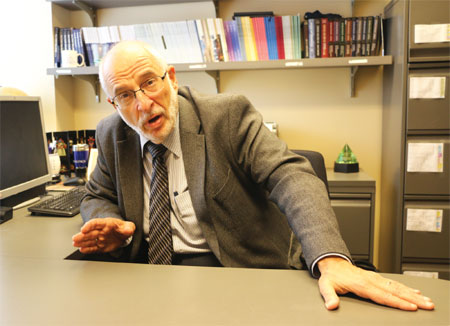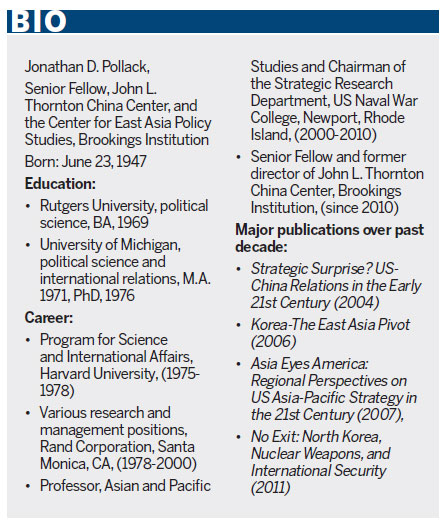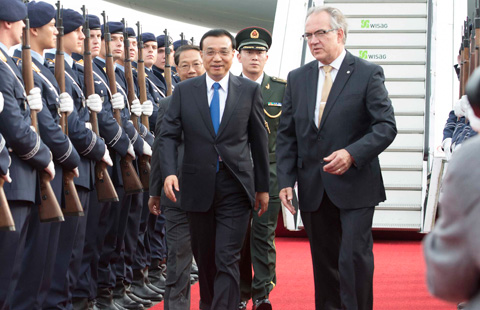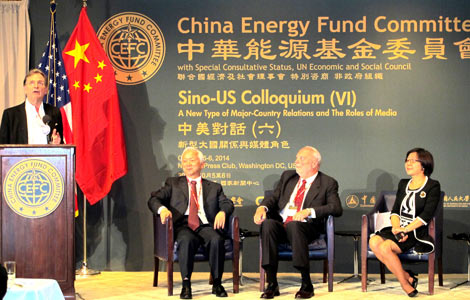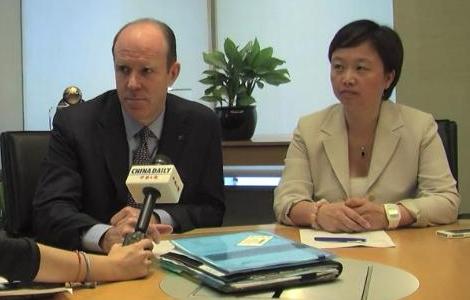A lifetime of keeping an eye on China
Updated: 2014-09-12 12:16
By Chen Weihua in Washington(China Daily USA)
|
||||||||

|
Jonathan Pollack, a senior fellow at the John L. Thornton China Center at the Brookings Institution, talks to China Daily in his office on Monday. Chen Weihua / China Daily |
Veteran China hand Jonathan Pollack says leaders should jump on chances to tackle the most pressing issues
When Jonathan Pollack was an undergraduate at Rutgers University in New Jersey in the late half of 1960s, the Vietnam War was raging, and China had just been thrown into a chaotic "culture revolution" (1966-1976).
Then US Secretary of State Dean Rusk, who fought during in WWII in the China-Burma-India theater, described the Vietnam War as really a fight against China.
As a political science major, young Pollack was curious to learn more.
"So that was the first time I got interested in China," said Pollack, now a senior fellow at the John L. Thornton China Center at the Brookings and the center's former director.
Pollack took a class in Chinese history. He was ignorant about China because US high schools at the time only taught American and European history.
Clearly intrigued by what he had learned, Pollack chose to study the Chinese language immediately after he graduated from Rutgers, spending the summer of 1969 in language classes at Stanford University.
Eclectic interests
When Pollack started to pursue his PhD in political science and international relations at the University of Michigan in the fall of 1969, he focused on China, but also studied East Asia and other countries in the region.
"I have to look at China in a broader, strategic and theoretical perspective," he said.
Allen Whiting, a top US specialist on China, was teaching at Michigan, with a particular interest in China's foreign policy.
"I was mainly working with Allen Whiting at that time," said Pollack, while taking two books by Whiting from the bookshelf in his Brookings office - Soviet Policies in China and China Crosses the Yalu: The Decision to Enter the Korean War.
Pollack's interest at the time was diverse and in his words "eclectic", from history to economics.
After graduating from Michigan in 1975, he found a fellowship at a science and international affairs program at Harvard University, doing research there on China for three years.
In US schools at that time, most of the study was focused on the Soviet Union, Europe or NATO. But the center at Harvard has begun to pay attention to Asia. "But (it was) very underdeveloped," Pollack recalled.
"The awareness of China was very minimal, and it (China study) didn't have high-level academic standing,"
While many of his fellow graduate students ended up with a teaching job, Pollack found himself more interested in "real world questions" rather than abstract academic theories.
Most Viewed
Editor's Picks

|

|

|

|

|

|
Today's Top News
Premier pushes innovation on German visit
Beijing to keep the lid on air pollution for APEC
Li arrives in Germany, first leg of Europe trip
China's economy surpasses US
IMF: Shadow banking filling gaps
China's status prominent at 'Big Four' firm Ernst & Young
US Ebola patient dies
China's role grows in Gates Foundation tech push
US Weekly

|

|
